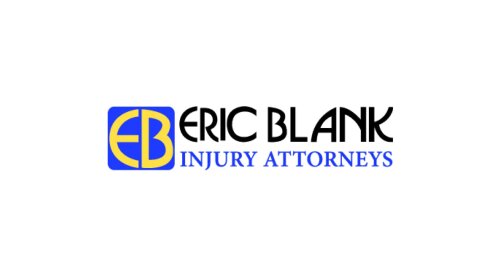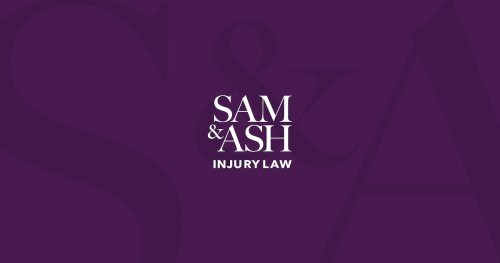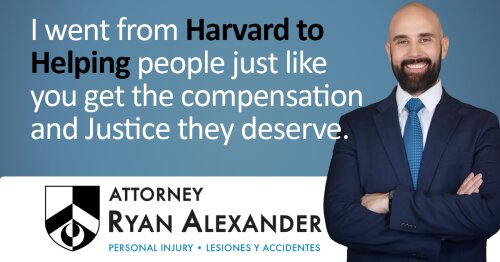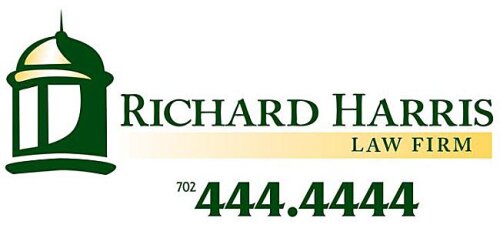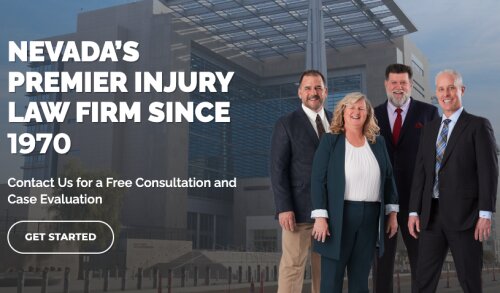Best Property Insurance Lawyers in Las Vegas
Share your needs with us, get contacted by law firms.
Free. Takes 2 min.
List of the best lawyers in Las Vegas, United States
About Property Insurance Law in Las Vegas, United States
Property insurance is the set of policies that protect homeowners, landlords, condo owners, and businesses against loss or damage to real property and personal property on the premises. In Las Vegas, property insurance functions under Nevada state law and under federal programs when applicable. Typical policies include homeowners insurance, commercial property insurance, renters insurance, flood insurance, and separate earthquake coverage. Policies establish the contract terms - what losses are covered, limits, deductibles, exclusions, and the duties of both the insurer and the insured.
Insurance regulation and consumer protections are set primarily by state law and enforced by the Nevada Division of Insurance. Practical insurance claims in Las Vegas are shaped by local risks, including storm-related wind and water damage, structural issues tied to heat and settling, and the potential for wildfire or flood in nearby areas. Because policies are private contracts, coverage disputes often turn on policy language, state rules for claim handling, and the facts of the loss.
Why You May Need a Lawyer
You do not always need a lawyer for a property insurance claim, but an attorney becomes important when the claim is complex, high-value, or when the insurer is not meeting its legal responsibilities. Common situations where legal help is useful include underpayment or lowball offers, claim denials based on coverage interpretations, bad faith handling by the insurer, delayed claim processing, or when the loss triggers multiple potential coverages.
Other reasons to consult an attorney include: significant structural damage after fire, storm, or collapse; disputes about replacement cost versus actual cash value; coverage questions involving business-interruption claims; conflicts with mortgage lenders or loss-payee clauses; difficulty with appraisal or arbitration processes; and when the insurer refuses to honor policy terms despite clear evidence of loss.
An attorney experienced in property insurance law can analyze your policy, advise on documentary proof and evidence, communicate with the insurer, preserve deadlines, file administrative complaints, and represent you in settlement negotiations or litigation if necessary.
Local Laws Overview
Nevada state law governs insurance contracts and the conduct of insurers in Las Vegas. The Nevada Division of Insurance oversees licensing, company financial condition, policy forms, and insurer claim-handling practices. At the local level, the City of Las Vegas and Clark County enforce building codes, permitting requirements, and post-loss inspections, which can affect coverage and repairs.
Key legal aspects that often matter in Las Vegas property claims include the following:
- Policy contract interpretation - Courts look to the written policy and will construe ambiguous language in favor of the insured in many circumstances.
- Duty to mitigate - Policyholders are typically required to take reasonable steps to protect property from further damage after a loss and to keep records of mitigation expenses.
- Notice and proof requirements - Policies set timeframes and procedures for giving notice of loss and providing proof of loss. Missing required steps can jeopardize coverage.
- Claim-handling rules - Nevada has regulations intended to prevent unfair claim practices. These rules cover timely investigation, communication, payment, and explanation for denials or partial payments.
- Exclusions and endorsements - Flood and earthquake coverage are commonly excluded from standard homeowner policies and must be purchased through separate policies or the National Flood Insurance Program. Local building and code upgrades after a loss can interact with ordinance-or-law coverages included in some policies.
- Dispute resolution - Policies often include appraisal clauses and may provide for mediation or arbitration. Litigation remains an option for many disputes, but timelines and procedural rules apply, so prompt legal review is important.
Frequently Asked Questions
What does a typical homeowners policy in Las Vegas cover?
A standard homeowners policy usually covers damage to the dwelling, other structures on the property, personal property, additional living expenses if you are displaced, and liability for injuries on the property. Coverage is subject to limits, deductibles, and exclusions in the policy. Common exclusions include flood and earthquake damage unless you have separate coverage.
How do I file a property insurance claim after damage occurs?
Contact your insurer as soon as reasonably possible and give notice of the loss. Document the damage with photos and videos, make a list of damaged items, keep receipts for emergency repairs, and preserve damaged property until the insurer inspects it or you are told otherwise. Follow your policy s instructions for submitting a proof of loss and cooperating with the insurer s investigation.
What is the difference between replacement cost and actual cash value?
Replacement cost pays to repair or replace damaged property with new property of like kind and quality without deduction for depreciation, subject to policy limits. Actual cash value pays the replacement cost minus depreciation for age and wear. Many policies pay actual cash value first and then, after repairs or replacement, pay the difference up to the policy s replacement-cost limit if your policy provides that benefit and you meet its conditions.
What should I do if my claim is denied or underpaid?
Request a written explanation from the insurer that states the reasons for denial or partial payment. Review your policy and the insurer s rationale. Document disagreements with photos, expert estimates, and contractor bids. Consider filing an administrative complaint with the Nevada Division of Insurance and consult an experienced property insurance attorney to evaluate options for negotiation, appraisal, or litigation.
Are flood and earthquake damages covered by home insurance in Las Vegas?
Generally, flood and earthquake are excluded from standard homeowners policies in Nevada. Flood coverage is commonly available through the National Flood Insurance Program or private flood insurers. Earthquake coverage is available through private insurers or endorsements. Check your policy for specific exclusions and consider separate policies if you face risk from those perils.
What is bad faith and how does it affect insurance claims?
Bad faith refers to unreasonable or unfair behavior by an insurer in handling a claim - for example, failing to investigate, unreasonably delaying payment, or denying a claim without reasonable basis. Nevada law provides consumer protections against unfair claim practices. If bad faith is established, an insured may have remedies beyond the policy limits, including potential extra-contractual damages and recovery of legal costs in certain circumstances. Consult an attorney to assess whether bad faith may apply to your situation.
When should I consider hiring a public adjuster versus an attorney?
A public adjuster helps prepare, document, and negotiate the insurance claim and typically charges a percentage of the settlement. Hire a public adjuster when you need assistance with estimates and claims paperwork but are not yet pursuing legal remedies. Contact an attorney when there is a denial, a bad faith issue, complex coverage questions, or when you need someone who can litigate, preserve legal claims, and pursue damages beyond the policy. In many large or complex losses people use both a public adjuster and an attorney, but be mindful of fee agreements and potential conflicts.
How long do I have to file a lawsuit against my insurer in Nevada?
Time limits to file suit are governed by state statutes, policy provisions, and the specific nature of the claim. Deadlines can vary depending on whether the claim is for breach of contract, bad faith, or another cause of action. Missing a deadline can bar legal claims, so contact an attorney promptly to confirm applicable time limits and preserve your rights.
Will filing a claim raise my insurance premiums in Las Vegas?
Filing a claim can affect premiums, but whether and how much depends on the insurer s underwriting practices, your claims history, the type of loss, and local market factors. Small claims are more likely to impact premiums than first-party claims for catastrophic losses that are covered by reinsurance or state pools. Discuss concerns about premium impact with your insurer and consult an attorney if you believe a claim was handled improperly.
How do I find a qualified property insurance lawyer in Las Vegas?
Look for an attorney with experience handling first-party property insurance claims, knowledge of Nevada insurance law, and trial experience for cases that cannot be resolved by settlement. Ask about past results in similar claims, fee structures - including contingency arrangements - and client references. Check licensing and discipline status with the Nevada State Bar and arrange an initial consultation to evaluate fit and strategy.
Additional Resources
Relevant agencies and organizations that can help include the Nevada Division of Insurance for consumer complaints and information about insurers, the Nevada State Bar for attorney referral and ethics information, FEMA and the National Flood Insurance Program for flood insurance guidance, and local building departments such as the City of Las Vegas Building Safety and Clark County Building Division for post-loss permits and inspections. The Nevada Attorney General s consumer protection office can be a resource for broader consumer concerns.
Local trade organizations and nonprofits that provide disaster recovery information, housing counseling, or legal aid may help homeowners with non-legal assistance. Public adjuster associations and professional property estimator organizations can be useful when you need independent claim documentation support.
Next Steps
Step 1 - Secure safety and mitigate further damage. If the property is unsafe, follow emergency procedures and get to a safe location. Take reasonable steps to prevent additional loss, such as tarping a roof or boarding windows, and keep receipts for mitigation costs.
Step 2 - Document everything. Take detailed photographs and videos, make lists of damaged items, preserve damaged property as instructed, and keep all invoices and communications with contractors and the insurer.
Step 3 - Notify your insurer. Provide timely notice of the loss and follow policy instructions for filing claims and submitting proof of loss. Be factual and keep written copies of every communication.
Step 4 - Get estimates and experts. Obtain contractor bids and, if needed, independent estimates from licensed professionals. For complex losses consider engineers, licensed contractors, or forensic experts to document damage and repair needs.
Step 5 - Consider professional help. If the insurer s response is unsatisfactory, if coverage is disputed, or if the loss is high-value, consult a property insurance attorney. An attorney can evaluate coverage, advise on appraisal or arbitration clauses, preserve legal rights, and represent you in negotiations or court if necessary.
Step 6 - Use regulatory remedies when appropriate. If you believe the insurer is violating state claim-handling rules, you can file a complaint with the Nevada Division of Insurance while pursuing other remedies. Keep in mind that administrative complaints and lawsuits can proceed on different tracks and have different outcomes.
Remember that this guide is informational and does not create an attorney-client relationship or constitute legal advice. For advice tailored to your situation, consult a licensed Nevada attorney who specializes in property insurance law.
Lawzana helps you find the best lawyers and law firms in Las Vegas through a curated and pre-screened list of qualified legal professionals. Our platform offers rankings and detailed profiles of attorneys and law firms, allowing you to compare based on practice areas, including Property Insurance, experience, and client feedback.
Each profile includes a description of the firm's areas of practice, client reviews, team members and partners, year of establishment, spoken languages, office locations, contact information, social media presence, and any published articles or resources. Most firms on our platform speak English and are experienced in both local and international legal matters.
Get a quote from top-rated law firms in Las Vegas, United States — quickly, securely, and without unnecessary hassle.
Disclaimer:
The information provided on this page is for general informational purposes only and does not constitute legal advice. While we strive to ensure the accuracy and relevance of the content, legal information may change over time, and interpretations of the law can vary. You should always consult with a qualified legal professional for advice specific to your situation.
We disclaim all liability for actions taken or not taken based on the content of this page. If you believe any information is incorrect or outdated, please contact us, and we will review and update it where appropriate.



